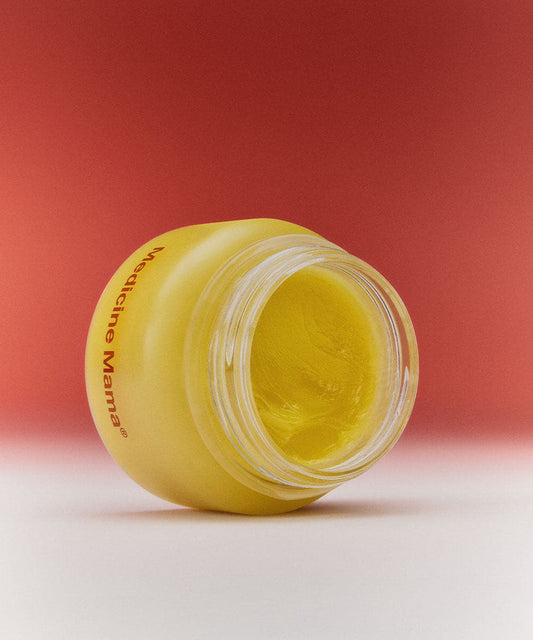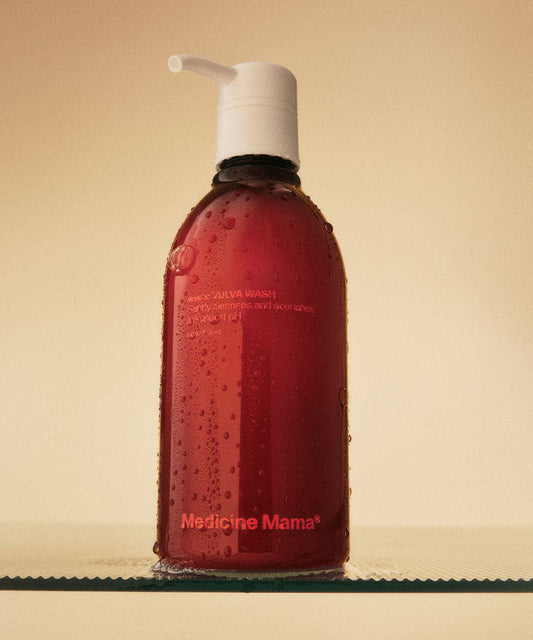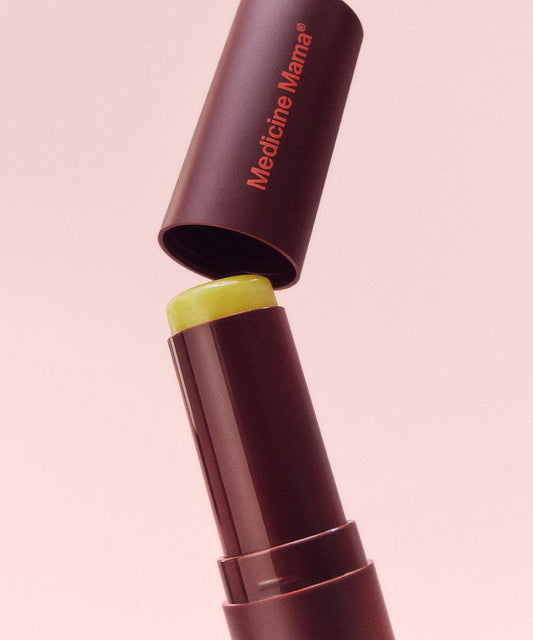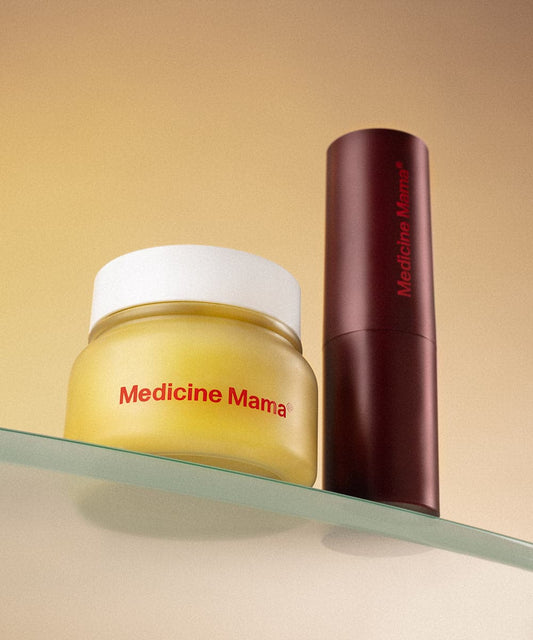
Reviewed by | Dr. Clare Bertucio MD
As we age our vulvas and vaginas go through significant changes, especially during puberty and menopause. Because of this, our vulvas and vaginas require just as much – if not more! – upkeep and maintenance as the rest of our bodies to reduce the impact of aging.
Although aging is a completely natural process, there can be some potentially avoidable side effects if we don’t take care of ourselves when we are younger and more resistant to change. The main reason for this is that during and after menopause, women’s bodies begin producing less estrogen.
Estrogen affects your heart, bones, breasts, reproductive system, urinary system, pelvic muscles, brain, and countless other parts of your body. It’s arguably one of the most important hormones in a woman’s body. So when our bodies decide to stop producing it, our bodies go haywire.
One of the most common complications of menopause and decreased estrogen production is a condition called vaginal atrophy. Keep reading to learn more about this uncomfortable condition, and how our products can help reduce your symptoms.
What is Vaginal Atrophy?
Vaginal atrophy, also known as atrophic vaginitis or genitourinary syndrome of menopause, is a common medical condition affecting 36.8% of women. While it can occur at any point in your life, it is more common during and after menopause.
Vaginal atrophy is characterized by thinning of the vaginal walls which leads to vulvar and vaginal dryness and itchiness, and it is also frequently accompanied by vaginal burning. This can lead to painful intercourse as well as severe difficulty and discomfort when urinating.
Some women may also experience bleeding or spotting during intercourse and difficulty having orgasms because of the pain and discomfort. Luckily, there are many treatment options available, and the sooner that treatment is sought out, the more effective it will be.
If you are experiencing pain or discomfort when urinating, during sex, or on a regular basis, consult your doctor.
What Are the Symptoms of Vaginal Atrophy?
Because vaginal atrophy affects the vulva, vagina, and the urinary tract system, the symptoms of vaginal atrophy are experienced in both areas. The most common symptoms of the condition include:
- Incontinence
- Vulvar and Vaginal dryness
- Vaginal burning
- Itching of the vagina and vulva
- Frequent urination
- Frequent urinary tract infections (UTIs)
- Vaginal discharge (typically a yellow color)
- Discomfort during sexual intercourse
- Pain during sexual intercourse
- Bleeding or spotting after sexual intercourse
- Constantly feeling pressure in your vagina
- Blood in your urine without a period
- More frequent yeast infections
- Less lubrication during sexual intercourse
These symptoms can be extremely uncomfortable, and they will not go away without treatment. In addition, because these symptoms can mimic or be caused by corresponding health conditions such as yeast infections and UTIs, many women will put off going to the doctor.
If you are experiencing these symptoms, particularly if you are going through or already have gone through menopause, then reach out to your doctor.
Can Vaginal Atrophy be Cured?
Postmenopausal vaginal atrophy is a chronic, progressive condition. This means that once you develop the condition, you will have it for life and if it’s left untreated, then it will get worse with time.
With proper treatment and care, however, vaginal atrophy is a very treatable condition and many women are able to become symptom-free with the use of OTC medication/cream or prescription medications.
Most women with mild to moderate vaginal atrophy will get relief immediately and will begin to feel significant improvement in comfort within 4 to 6 weeks of starting treatment.
How is Vaginal Atrophy Diagnosed?
If your doctor suspects that you may have vaginal atrophy, the first thing that they will do is perform a pelvic exam – just like the ones that you get during your annual checkup! During your exam, your doctor will feel for and look for visual signs of atrophy including:
- Dryness or redness of the vulva and vagina
- Shortened or narrow vagina
- Vulvar skin with excess elasticity
- If your bladder is too low
- Bulges in the walls of the vagina
- Vulvar and vaginal discoloration
- Cuts, tears, or other signs that the vulvar or vaginal skin is too thin
- Discoloration or lesions on the vulva
In most cases, a pelvic exam will be enough for your doctor to diagnose you. There may be some cases where additional testing is needed, however. When this happens, your doctor may order a urine sample, pap smear, ultrasound, vaginal pH balance testing, or hormone testing to be sure.
When Should You See Your Doctor?
It can feel embarrassing to talk about vaginal problems with anyone, even your doctor. Although many of us were raised to avoid talking about our genitals and any personal problems such as itchiness or dryness that we may be having, it’s time to end that stigma.
The vagina is a completely natural and incredible part of our body, and it needs care, check-ups, and maintenance just like our other organs and body parts. If you don’t feel comfortable talking to your primary care doctor about genital concerns, then speak with your OB-Gyn or ask for a recommendation if you don’t already have one.
Your OB-Gyn will never judge you. They’re there to help! And don’t forget, vulvar or vaginal atrophy is more common than people think, so it’s nothing to be ashamed of. If you are experiencing vulvar or vaginal discomfort, itchiness, or pain during sexual intercourse or when urinating, then it’s time to talk to your doctor.
What Type of Doctor Can Treat Vaginal Atrophy?
In some cases, your primary care physician may be able to diagnose and treat your vaginal atrophy. This is more common with family doctors that have been trained to recognize common health complaints among all genders.
You may feel more comfortable making an appointment with your OB-Gyn, however, as they specialize in treating conditions that involve the female reproductive system.
Preparing For Your Doctor’s Visit
Before your doctor's appointment, be sure to keep a journal of your symptoms for a few weeks. Keep track of any time that you notice itchiness, dryness, discomfort, pain, or any of the symptoms of a urinary issue. In addition, be sure that you record any instances of pain or discomfort during sex.
This information, as well as how long you have been experiencing the symptoms, can be an invaluable tool for getting a quick diagnosis. Be sure to have a list of any medications or vitamins that you may be taking as well as some of them may interfere with new medications that your doctor may prescribe.
Be open, honest, and detailed when you describe your symptoms to your doctor. Don’t try to downplay your discomfort or try to tough it out. Your doctor is there to help, and the more that you tell them about your symptoms, the better they will be able to help you!
What Causes Vaginal Atrophy?
Vaginal atrophy occurs when your body stops producing estrogen, typically after menopause or a hysterectomy. Since menopause can lower your estrogen production by up to 85%, and a hysterectomy essentially triggers early menopause, vaginal atrophy after a hysterectomy is common.
Menopause and hysterectomies are not the only causes of decreased estrogen production, however. Other conditions that can reduce your estrogen and cause vulvar or vaginal atrophy include:
- Hormone treatments
- Anti-estrogen medication
- Pelvic radiation therapy
- Chemotherapy
- Surgery that removes one or both ovaries (for example due to endometriosis, cysts, or cancerous or noncancerous tumors)
- Certain birth control medications
- Breastfeeding
It’s important to know that although vaginal atrophy is more common in postmenopausal women, it can occur at any age if your estrogen levels decrease significantly. One of the first signs of vulvar or vaginal atrophy is a decrease in vaginal lubrication and dryness of the vulvar skin leading to itchiness and dryness.
What Risk Factors Contribute to Vaginal Atrophy?
Menopause is the highest contributing factor to developing vulvar or vaginal atrophy, but it is not the only factor. In addition to the causes listed above, other potential contributing factors include:
- Autoimmune disorders
- Lack of sexual intercourse/ decreased libido levels
- Eating disorders can affect hormone levels
- Genetic conditions that cause low estrogen such as Turner Syndrome and Fragile X syndrome
- Premature menopause
- Certain conditions that affect your pituitary gland such as a pituitary tumor or hypopituitarism
- Excessive and chronic stress
- Smoking
It’s important to be completely honest with your doctor about your health history and your family's health history to the best of your knowledge. If you have certain genetic conditions or past health conditions then your doctor will be better able to predict and manage future health concerns.
Can Vaginal Atrophy Be Prevented?
It can be difficult to completely prevent vaginal atrophy since it is the result of a decrease in estrogen production that occurs naturally as we age. One of the best ways to prevent vaginal atrophy from progressing is to talk about it with your doctor as soon as you begin to experience symptoms.
By catching and treating your symptoms as soon as they begin, you can avoid a lot of pain and discomfort. The longer that you try to just deal with and ignore your symptoms, the worse they will become.
Even before you are diagnosed with vulvar or vaginal atrophy, you can use holistic, all-natural products such as our VMagic Vulva Balm to add lubrication and moisturize your vulva. Our products are designed for anyone that is experiencing discomfort in these areas, and because they are created with all-natural products they are safe for daily use!
Some other things to consider are that if you are a smoker, you should try to quit as soon as possible. This is because nicotine affects your cardiovascular system and reduces blood flow to your tissues – including your vagina.
Another thing you can try is being more intimate with your partner. That can be easier said than done sometimes if you are already experiencing symptoms, but having regular sex has been shown to improve blood flow to the genital area which can help reduce dryness and discomfort over time.
If you find it difficult to have sexual intercourse due to tightness, dryness, or other discomfort, consider using a water-based lubricant to help make things more enjoyable.
Who is at Risk of Developing Vaginal Atrophy?
Women in their early-to-mid 50s who have gone through menopause are most at risk for developing vulvar or vaginal atrophy. Women who have had hysterectomies are also at a higher risk than others.
While vaginal atrophy can occur at any age, the risk before menopause is extremely low unless you have other preexisting conditions or other risk factors that may increase your chances.
How to Treat Vaginal Atrophy
There are several vulvar and vaginal atrophy treatment options available, and the one that is right for you will vary depending on the severity of your symptoms. Some women may only need over-the-counter treatments or holistic treatment options whereas others may require prescription medications.
If your symptoms are minor and you are still interested in being intimate with your partner, then having regular sexual intercourse can help your vagina regain elasticity which can help reduce discomfort. Use water-based lubricants before sex or a topical moisturizing ointment made specifically for genital regions daily to help reduce dryness and irritation.
Hormone Therapy
Several hormonal therapy options are available depending on the severity of your symptoms including. Your doctor may recommend one of many topical vulvar or vaginal estrogen options.
Some are inserted directly into the vagina with an applicator, others are suppositories or tablets that are inserted into the vagina a few times a week, or your doctor may recommend an insertable estrogen ring that will be placed during your office visit. These will typically be replaced every 3 months.
What Medication is Best for Vaginal Atrophy?
In other cases, your doctor may recommend alternative medications to the topical vaginal estrogen options. These medications include:
- Ospemifene: a pill that can help reduce and relieve painful sex symptoms.
- Topical lidocaine: can be applied directly to the vulva and vagina up to 10 minutes before intercourse to reduce discomfort.
- Vulvar Moisturizer: Like Vmagic Vulvar Balm can be applied to the vulvar area and around the vaginal opening to add moisture and reduce irritation.
- Systemic estrogen therapy: More intense than local hormone therapy, this may be recommended if you have extremely low estrogen levels, or if you have not entered menopause yet.
Talk to your doctor to learn which course of treatment is best for your symptoms.
Other Treatment Options
Sometimes, vaginal atrophy can cause your vagina to tighten, narrow, and shorten which can make sex extremely uncomfortable. In severe cases, your doctor may recommend a vaginal dilator in addition to hormone therapy.
Although it may sound intimidating, a vaginal dilator can help to stretch and stimulate the vagina slowly to help it reverse the narrowing. This can help your body become accustomed to sex again and can help significantly reduce pain and discomfort during intercourse.
This treatment option is typically only recommended to women who are interested in having sex, so this type of treatment may not be right for everyone.
Over-the-Counter Solutions
OTC medication/cream for vulvar and vaginal atrophy or water-based lubricants can be used daily or every few days, respectfully, to help reduce dryness, itchiness, and discomfort. Certain products are designed specifically for treating genital areas, and these are the ones that you should choose.
Do not use regular lotion, vaseline, or any type of steroid cream that is not designed for your vulva or vagina.
Our Vmagic Feminine Wash is a PH-balanced, gentle feminine cleanser that rejuvenates and nourishes skin, rinses residue-free, and helps support the pH of your vulva. This calming formula washes and moisturizes without foaming and is gentle enough for daily use.
Fragrance, an often-unnecessary irritant, has intentionally been left out of this formula to respect the delicate nature of your vulva skin. When used daily, this gentle cleanser can help provide immediate relief to dry and itchy intimate areas.
Hormone Free Solutions
Our most popular product is also an incredible vulvar atrophy natural treatment option! Our VMagic Vulvar Balm is a hormone-free vulvar atrophy treatment that is all-natural and made with only the highest quality ingredients including honey, olive oil, and avocado to help soothe the vulva.
This unique proprietary formula is the ideal solution to help prevent itchiness, pain, chafing, and dryness and can help make sex more comfortable and enjoyable. It is gentle enough to be used daily, and in a recent clinical trial the results showed that:
- 100% of participants reported zero irritation
- 92% saw a reduction in dryness after 2 weeks
- 79% reported immediate relief from skin dryness
Hear What Our Customers are Saying!
VMagic Vulvar Balm: “This is my second order and I will not live without this product. I am a post menopausal woman who has dryness on the external genitalia and some vaginal atrophy. This is an external use product. It soothes dryness on the vulva and any area on the external genitalia. There are no chemicals for irritation and it soothes immediately on contact. It helps when I am irritated or not. It helps to prevent external chafing when I cycle or with sexual intercourse. It is better than petroleum jelly and over the counter product from pharmacies. The smell is neutral. A little goes a long way. As a retired OB/GYN I would recommend this product unconditionally.”
VMagic Feminine Wash: “The mix of vaginal atrophy and recurrent UTI's has plagued me for years. The two are very much linked, a side effect of the aging process. Doctors have never been terribly helpful about how to manage these issues, and always wanted me to use costly pharmaceuticals that have side effects. This year I found Medicine Mama, and I couldn't be more pleased. I'm using both the the VMagic Vulvar Balm and VMagic Feminine Wash, and I've managed to go a full year without a UTI. Cutting down on irritation, and providing subtle lubrication with no side effects has made all the difference. I highly recommend these products!”
If you’re experiencing symptoms of vulvar or vaginal atrophy or if you’re simply wanting to take charge of your vulvar health, reach out to our customer service team today to learn which of our products are best for you!
Disclaimer: The information provided on this blog is for general informational and educational purposes only. All content, including text, images, graphics, and other material, is not intended to be a substitute for professional medical advice, diagnosis, or treatment.
Always seek the guidance of your physician or other qualified health professional with any questions you may have regarding a medical condition, treatment, or wellness program. Never disregard the advice of a medical professional or delay in seeking it because of something you have read on this website



